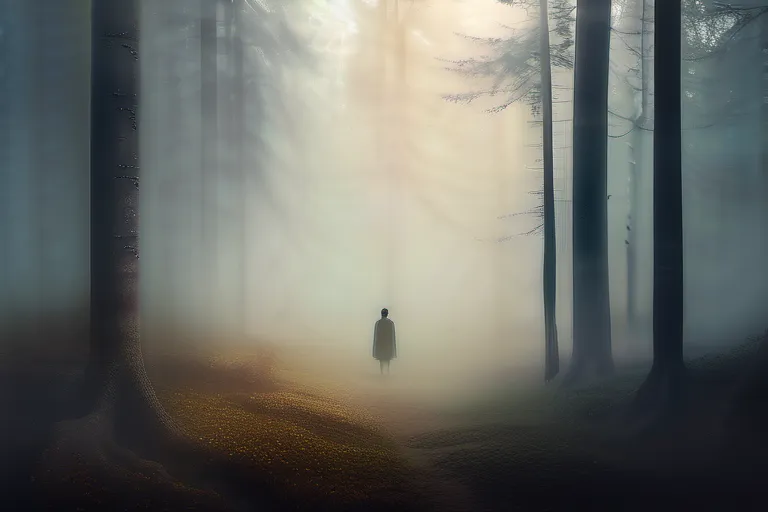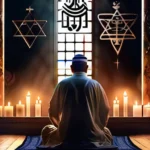Explore the scientific, religious, and philosophical perspectives on life after death.
Delve into the fascinating topic of what happens after we die. This article will explore various theories from different cultures, religions, and scientific perspectives to provide a comprehensive understanding of this age-old question.
The Scientific View: The Brain and Consciousness
Delving into the scientific view on what happens after we die, one cannot help but ponder over the intricate relationship between our consciousness and the brain. Could it be that our mind is merely a product of chemical reactions and electrical impulses? Or does the brain act as a mere conduit for something far more profound?
From a scientific standpoint, consciousness remains one of the most elusive phenomena to understand. Neuroscientists have spent decades unraveling the mysteries of how our brain functions but are still grappling with the concept of consciousness itself. Is it an emergent property of complex neural networks, or is there something more at play?
A popular theory in neuroscience suggests that consciousness is not just a byproduct of brain activity but could persist even after death, perhaps in a non-local form, similar to the way quantum particles can remain entangled. However, this idea remains speculative and far from being proven.
The scientific community also explores the phenomenon of near-death experiences (NDEs), where individuals report feelings of peace, seeing a light at the end of the tunnel, or even experiencing their lives in reverse. Are these glimpses into another realm, or simply the brain’s attempt to make sense of its impending shutdown?
One thing is certain: as we delve deeper into understanding our own consciousness, we are left with more questions than answers. The scientific view on death and what happens afterward is a fascinating journey that blends the tangible world of biology with the intangible realm of human experience.
But as we explore these theories, it’s important to remember that science alone cannot provide all the answers. What about those who believe in an afterlife? How do their views intertwine or conflict with what neuroscience tells us?
Religious Perspectives: Heaven, Hell, and Reincarnation
What happens after we die? This question has puzzled humanity for centuries, and religious perspectives offer some of the most colorful and complex answers. Imagine walking into a grand cathedral where the walls are painted with vivid depictions of heaven and hell—these are just two of the many realms that different religions envision as destinations for our souls.
Heaven, often portrayed as a place of eternal bliss, is seen in various forms across cultures. In Christianity, it’s described as a mansion where Jesus welcomes believers with open arms, offering them a life of perfect peace and joy. Conversely, in Islam, heaven (Jannah) is depicted as a lush garden, filled with fruits and luxuries, where the faithful are rewarded for their good deeds.
But not all religious beliefs promise an eternal paradise. In Hinduism, the concept of reincarnation plays a central role. Here, souls are believed to cycle through numerous lives (or samsara) until they achieve spiritual enlightenment and liberation from the cycle. The journey through these lifetimes is often seen as a series of trials, with each life offering lessons that lead one closer to liberation.
Hindu scriptures like the Bhagavad Gita suggest that our actions in this life (karma) determine where we are reborn. This idea challenges us to ponder: how do our choices shape not just our current existence, but also our future lives? And what does it mean for the soul’s eternal quest for moksha—liberation from the cycle of birth and death?
Other religions offer different interpretations. In Buddhism, the focus is on achieving a state of enlightenment (nirvana) where one transcends suffering. The path to this state often involves meditation, ethical living, and understanding the nature of reality. Meanwhile, in Zoroastrianism, souls are judged by Ahura Mazda after death, with those who lived virtuously going to heaven (Saomahras) and those who did not facing punishment.
Each religious perspective paints a unique picture of what happens after we die. These beliefs not only shape our understanding of life but also influence our behavior and moral choices. By exploring these varied views, we can gain insight into the profound questions that have driven human curiosity throughout history: Are we truly immortal in some form? And if so, where do we go?
Philosophical Approaches: Materialism, Dualism, and Immortality
Philosophical Approaches: Materialism, Dualism, and Immortality
As we delve into the realm of philosophical perspectives on what happens after we die, we find ourselves exploring some of humanity’s most profound questions. Have you ever pondered the nature of consciousness? Is it just a fleeting spark that flickers out at death, or does it persist in some form?
Materialism posits that everything in existence can be explained by physical phenomena and processes. In this view, your mind and self are simply emergent properties of your brain’s functioning. When you die, the brain ceases to function, and with it, consciousness fades away into nothingness. This perspective is often likened to a candle extinguishing – once the flame of life is snuffed out, there’s no light left behind.
On the other hand, dualism suggests that the mind or soul exists independently of the body. Here, your essence lives on in some form after death, much like a butterfly transforming from a caterpillar. The soul, if you will, continues its journey beyond this physical existence. This idea is akin to a river flowing endlessly, where the water molecules change but the flow never ceases.
Then there’s immortality, which isn’t just about living forever but also about persisting in some form of consciousness or existence. Some philosophers argue that consciousness can exist independently and continue beyond death, perhaps as part of a collective or distributed system. Imagine the mind as a book – it can be read and written in various ways; when one copy closes, another opens.
These philosophical theories offer us a framework to contemplate our place in the universe and our potential afterlife. Do you believe that consciousness is an illusion that vanishes with death? Or do you see the possibility of immortality as a continuation of your unique existence?
The journey through these philosophical ideas might leave us with more questions than answers, but it certainly enriches our understanding of the mysteries surrounding life’s end.
Near-Death Experiences: A Personal Account
Imagine, if you will, that one day your world turns upside down. Your body lies motionless, surrounded by doctors and machines. The moment seems to stretch endlessly as time itself loses its meaning. But then, in a flash, everything changes. You find yourself floating above the scene, observing the very people who thought they were saving you. This is not just any experience; this is a near-death experience (NDE). How does it affect our understanding of life after death?
One person, let’s call her Sarah, recounts such an encounter. She had always been skeptical about the afterlife, believing firmly in the scientific explanation that consciousness ends with the cessation of brain activity. But then one day, she was rushed to the hospital, suffering from a severe heart condition. As the doctors worked tirelessly, she felt herself slipping away.
“Was I really leaving this world?” Sarah wondered as she floated out of her body. “Was it all just an illusion?” She found herself in a realm of white light, where she met deceased loved ones and experienced profound peace. The experience left her questioning everything she thought she knew about the end.
How can we reconcile such experiences with scientific understanding? Is there something more to life than what meets the eye? Or are NDEs simply products of a mind under extreme stress?
The impact on Sarah’s beliefs was profound. She started exploring religious and spiritual texts, seeking answers that seemed to align with her experience. She began to see life as a continuum rather than an endpoint, wondering if perhaps there is indeed more beyond the veil of death.
Near-death experiences like Sarah’s offer us a glimpse into the mysteries that lie beyond. They challenge our perceptions and invite us to reconsider the nature of existence itself. Are we just fleeting sparks in the vastness of time, or do we carry on in some form after we die? The answer, as it often is with questions of the afterlife, remains a profound mystery, waiting for each individual to explore and interpret in their own unique way.
Cross-Cultural Beliefs: Death in Different Cultures
Imagine stepping into a vibrant tapestry that weaves together threads of ancient belief and modern understanding, all centered around one fundamental question: what happens after we die? Across cultures, this query takes on myriad forms, each offering a unique perspective on the mysteries of life’s end. In some societies, death is seen as a transition to another realm, where loved ones continue their existence in a different form; in others, it marks the ultimate dissolution into nothingness.
In many indigenous cultures, like those found in Australia and North America, death is often viewed not as an end but as a continuation of life. The souls of the deceased are believed to transform and move on to a new existence within their community or natural world. This belief system can be likened to a river where each person’s life is like a drop that eventually merges into the broader flow, continuing the cycle of life.
Conversely, in many Eastern traditions such as Hinduism and Buddhism, death signifies rebirth. The soul, or atman, is thought to be eternal and undergoes a series of reincarnations until it attains enlightenment. This concept can be compared to the changing seasons; just as nature transitions from one phase to another, so too does the soul experience different lives before achieving a state of peace.
Western religions, particularly Christianity, offer a different narrative. In many Christian beliefs, death leads either to eternal bliss in heaven or eternal suffering in hell, depending on an individual’s actions and faith during life. This view can be likened to a binary code where each decision in one’s life affects the outcome of their digital existence.
Each culture’s perspective on life after death provides a lens through which we can explore our own beliefs and mortality. Whether viewed as a continuation, transformation, or transition, these diverse viewpoints invite us to question and reflect on what we truly believe happens beyond our earthly lives. As we delve deeper into these cross-cultural beliefs, we uncover not just the answers to our questions but also the richness of human imagination and resilience in the face of life’s greatest mysteries.
The Search for Answers: Ongoing Research and Debate
How many times have we wondered about the ultimate journey, the mysterious realm that lies beyond our earthly existence? The question, ‘What happens after we die?’ has plagued humanity for millennia, sparking ongoing research and debate across various fields.
In science, researchers continue to explore brain function and consciousness. For instance, studies on near-death experiences (NDEs) have sparked discussions about the nature of consciousness and whether it can exist independently of the physical body. Some scientists argue that NDEs could be a result of the brain’s response to oxygen deprivation, while others propose more profound explanations involving the soul or consciousness.
However, religion offers its own perspectives on life after death. Various faiths paint vivid and diverse landscapes: some speak of heaven and hell, others of reincarnation or an eternal soul. The concept of a soul that continues to exist beyond the physical body is central in many religious texts and teachings. Yet, these beliefs often come with strict interpretations and dogmas, leading to varying understandings and practices across different cultures.
Then there’s philosophy, which delves into more abstract and theoretical questions about existence and consciousness. Philosophers like Descartes pondered the separation of mind and body, while modern thinkers explore quantum mechanics in relation to consciousness. This field invites us to question the very nature of our reality and whether death is merely a transition or an end.
So, as we navigate these complex terrains, one wonders: do the answers lie within scientific proof, religious dogma, or philosophical musings? Or perhaps it’s a combination of all three that will finally unravel the mystery of life after death. The search continues, and with each new discovery, the veil becomes just a little bit thinner.
What do you think lies beyond our mortal coil?
Conclusion
 By examining multiple viewpoints, we can gain a deeper appreciation for the diversity of human beliefs about life’s end and perhaps find some comfort in the mysteries that remain.
By examining multiple viewpoints, we can gain a deeper appreciation for the diversity of human beliefs about life’s end and perhaps find some comfort in the mysteries that remain.











